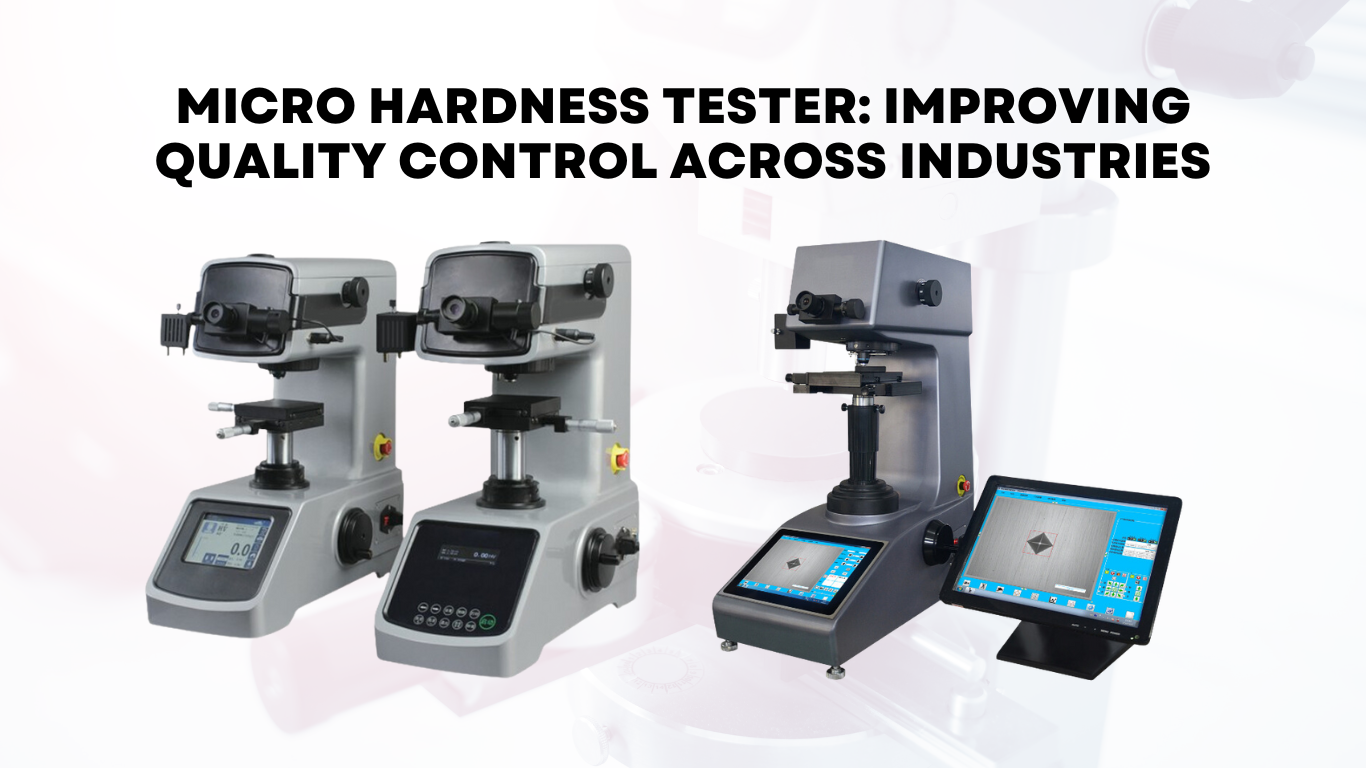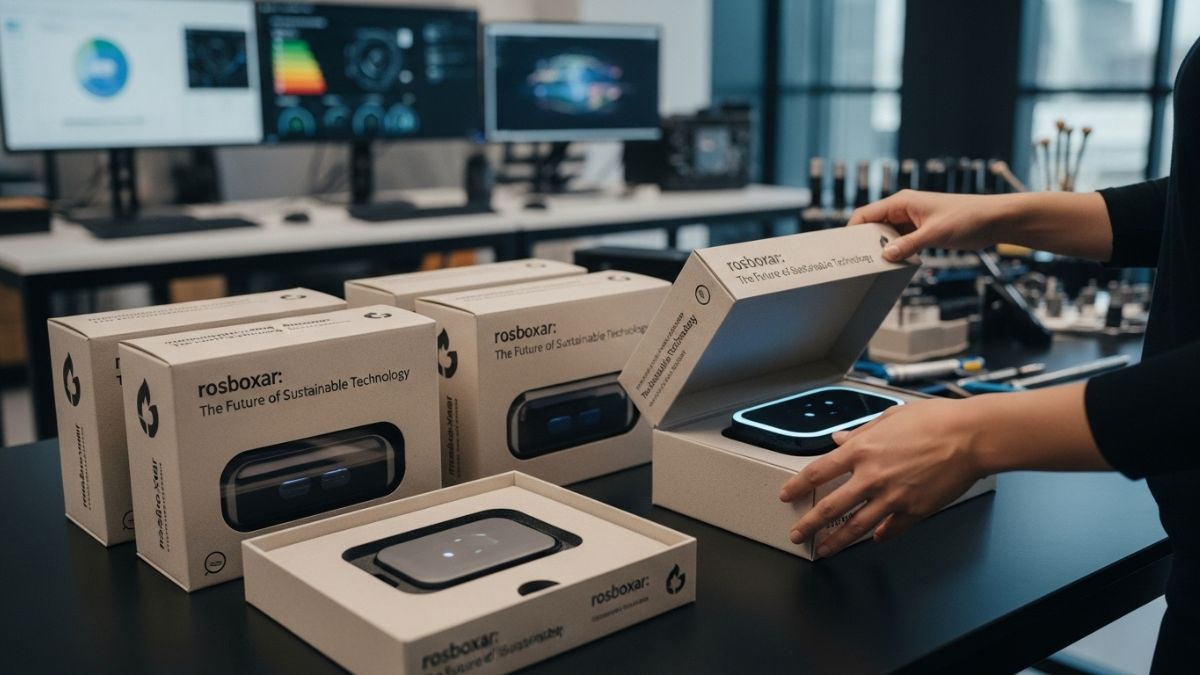Precision in material testing is important for quality control across many industries. From electronics to aerospace, components must meet strict durability standards.
A micro hardness tester helps achieve this precision, allowing you to measure the hardness of small components or thin layers. Micro hardness testing is designed for micro-scale accuracy, providing valuable data on material quality and consistency.
This article covers the basics of micro hardness testing, key methods, and specific industry applications that benefit from this process. With the right micro hardness testing machine, you can ensure that materials meet required performance standards, contributing to product reliability and quality.
Understanding Micro Hardness Testing
Micro hardness testing measures the hardness of materials on a small scale, which is particularly useful for evaluating thin coatings or small parts.
Unlike traditional hardness testing, which examines larger samples, micro hardness testing focuses on precise measurements for tiny areas. This method is essential in industries where component size is small but must withstand heavy usage or harsh conditions.
A micro hardness test typically involves using an indenter, often made of diamond, to create a small impression on the material. By measuring this impression, the tester calculates the hardness of the sample. This approach reveals insights into the material’s resistance to deformation, making it easier to choose the right materials for specific applications.
Key Micro Hardness Testing Methods
Two common methods are used in micro hardness testing: Micro Vickers Hardness Testing and Micro Indentation Hardness Testing. Each method offers unique advantages depending on the material and application.
Micro Vickers Hardness Testing
The micro vickers hardness tester is a popular choice for precise hardness measurements across various materials. This method uses a diamond indenter with a square-based pyramid shape. The tester applies a controlled load onto the material’s surface, and the resulting indentation is measured to calculate hardness.
Micro Vickers hardness testing works well with a wide range of materials, including metals, ceramics, and thin coatings. Its versatility makes it valuable in research labs, quality control, and manufacturing, where precise hardness data is essential for understanding material performance.
Micro Indentation Hardness Testing
The micro indentation hardness tester measures hardness by evaluating the depth of the indentation created by an applied force. This method is particularly useful for brittle materials or those with very thin surfaces, such as coatings on electronic components or medical devices.
The micro hardness testing method allows researchers to obtain data on how materials respond to stress on a small scale, making it ideal for industries focused on product reliability.
Industry-Specific Applications of Micro Hardness Testing
The applications of micro hardness testing machines span various industries where material quality and durability are paramount. Here are some of the most common applications:
1. Electronics Industry
In electronics, components are often small and delicate but must perform reliably under constant use. Micro hardness testing evaluates thin coatings and small metal parts within electronic devices.
For example, micro hardness testing can assess the hardness of conductive coatings or connectors, which are essential for device functionality. With a micro hardness tester, electronics manufacturers can ensure consistent quality in their products.
2. Aerospace and Automotive
Materials used in aerospace and automotive sectors need to withstand high-stress environments. Micro hardness testing confirms that critical components meet durability standards.
For example, a micro vickers hardness tester can test coatings on engine parts, turbine blades, and other high-stress materials. Ensuring that these parts have the correct hardness helps improve their longevity and performance under demanding conditions.
3. Medical Device Manufacturing
Medical devices often contain small, precisely manufactured components that must remain durable over time. From surgical tools to implants, hardness testing ensures that each part meets necessary standards for safety and effectiveness.
A micro hardness testing machine can provide reliable hardness data for materials used in medical devices, helping manufacturers deliver high-quality, durable products that can be safely used in medical procedures.
4. Jewelry and Watchmaking
In jewelry and watchmaking, small metal parts and surface finishes must not only look good but also resist wear and tear. A micro hardness tester helps evaluate the scratch resistance and durability of these components, ensuring that pieces hold up well over time.
For example, jewelry makers can use micro hardness testing to assess the hardness of precious metals like gold and silver, confirming that their products maintain their appearance and quality.
5. Material Research and Development
Researchers often work with new materials, including polymers, thin films, and advanced composites. Micro hardness testing provides valuable data on how these materials respond to stress, helping researchers refine their properties.
The micro hardness testing method supports material innovation by offering insights into durability and resistance, which are essential for developing high-performance materials.
Benefits of Using a Micro Hardness Testing Machine
Micro hardness testing offers several benefits for quality control and material research:
- Accurate Measurements for Small Areas: Micro hardness testing machines provide precise measurements for small components or surface layers.
- Versatility Across Materials: A micro hardness tester works with a wide variety of materials, from metals to polymers and ceramics.
- Cost Efficiency: Identifying material weaknesses early reduces product returns and saves costs.
- Improved Product Quality: Consistent hardness testing ensures that materials meet performance standards, leading to higher-quality products.
With these benefits, micro hardness testing contributes to quality assurance across industries, making it easier to deliver reliable, durable products.
Conclusion
Micro hardness testers are valuable tools for improving quality across various industries. With their ability to measure hardness at a micro scale, these testers help ensure materials meet performance expectations and contribute to product reliability.
Whether you’re in electronics, aerospace, or medical manufacturing, micro hardness testing offers a practical way to uphold quality standards and gain confidence in your materials.
If you are looking for a micro hardness tester for your industri, we recommend exploring the extensive range from Qualitest North America. For more than 25 years, Qualitest has been at the forefront of state-of-the-art materials testing and quality control instruments.















